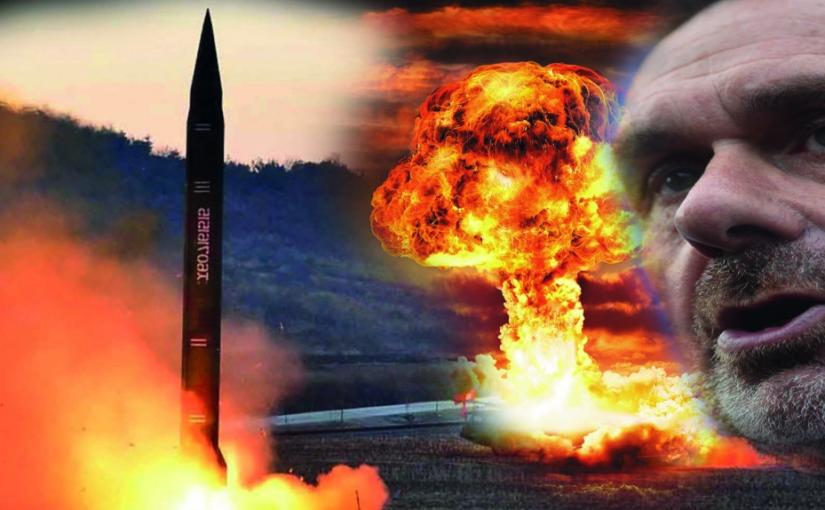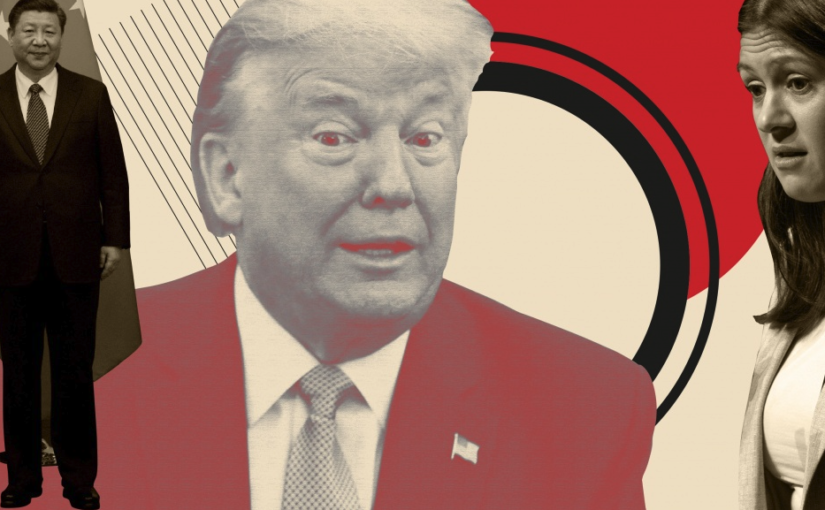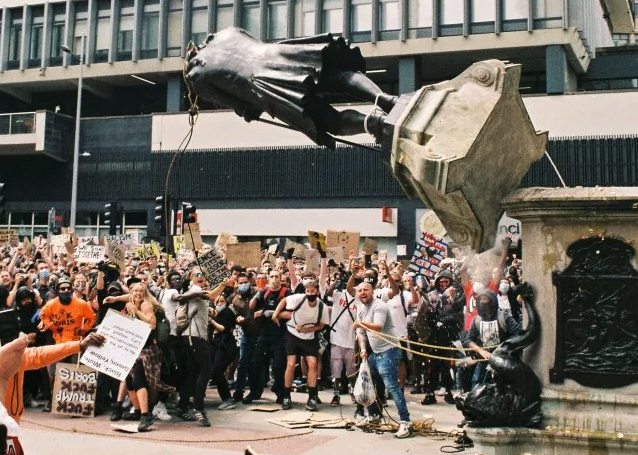This article originally appeared in the Morning Star.
Living in the heartlands of imperialism, you learn to expect censure if you defend socialism and oppose war. To be attacked by the forces of the hard right is nothing unusual; as Sekou Toure observed, “if the enemy is not doing anything against you, you are not doing anything.” Hence getting trolled by Donald Trump Jr for example can comfortably be worn as a badge of honour.
To be attacked by a stalwart of the left, someone who had been a prominent supporter of Jeremy Corbyn, is of course less welcome. In a recent piece for the New Statesman, Paul Mason singles out the Morning Star and Socialist Action as being “the two left-wing publications in the UK that appear committed to whitewashing China’s authoritarian form of capitalism”, highlighting articles by myself, the Morning Star editor and John Ross.
Uncritical parroting of Cold War propaganda
Mason’s key complaint against the anti-imperialist left is that it “parrots the Chinese state”, for example by labelling the Hong Kong protestors as a “violent fringe”. It’s ironic then that, in his critique, he prefers to parrot the China hawks in Washington – the likes of Donald Trump, Mike Pompeo, John Bolton and Peter Navarro.
Mason states for example that the Chinese state is “using forced labour, sexual violence, coercive ‘re-education’ and mass incarceration” to destroy Uyghur culture. The evidentiary basis for this narrative, which has now become hegemonic in the West, is laughably weak, on a par with the claim that Iraq had weapons of mass destruction, or that Muammar Gaddafi was using rape as a weapon of war.
These are perhaps sore points, since Mason supported the bombing of Libya and as recently as 2017 put forward the view that Iraq was ‘bluffing’ about having WMD, implying that the Iraq War was built on faulty intelligence – rather than being a knowing and callous act of imperialist domination.
The allegations regarding Chinese mistreatment of Xinjiang’s Uyghur population have been comprehensively debunked by Ajit Singh and Max Blumenthal, and there’s no need to recapitulate their work here. What’s worth noting however is the depressing familiarity of how the ‘Uyghur genocide’ story has become so widespread: separatist extremist group (in this case the World Uyghur Congress) forms an alliance with Washington-based NGO (in this case the Network of Chinese Human Rights Defenders), which uses US tax-payer money – via the National Endowment for Democracy – to create a slick PR campaign building mass support for a broad-based attack on an ‘enemy state’ (in this case China).
It was a very similar process that won significant support within the Western left for NATO’s wars in Yugoslavia, Libya and Syria. Interestingly, the two publications Mason cites in his recent attack – the Morning Star and Socialist Action – were among the honourable few that weren’t duped by this propaganda. Paul Mason on the other hand cannot make such a claim. Indeed his major criticism of the Western powers over Libya and Syria is the ‘powerlessness’ of their regime change operations.
By accusing others of “parroting the Chinese state”, Mason is simply trying to divert attention from his own record of parroting State Department talking points that serve specifically to build public support for wars (of both the hot and cold variety).
This isn’t taking a principled and consistent stance against injustice; it’s feeding into a dangerous propaganda campaign that’s combined with economic sanctions, naval patrols in the South China Sea, the construction of military bases, a strategy of ‘China encirclement’, diplomatic attacks, support for violent separatist movements, and an economic and political ‘delinking’ that threatens to demolish global cooperation around some of the crucial issues of our time, including climate change and pandemic containment.
Neither Washington nor Beijing?
Mason informs his readers that “the point of being a socialist is being able to walk and chew gum at the same time.” This isn’t an idea that I’ve come across in the writings of Marx, Engels or Lenin, but presumably it’s buried somewhere in the Grundrisse. Anyway, Mason’s point is that a good leftist can condemn both the US and China; that one should adopt a position of Neither Washington nor Beijing. This position – which appears to be gaining traction in parts of the left – was absurd in its original Neither Washington nor Moscow form, and it’s absurd now.
To put an equals sign between the US and China, to portray their relationship as a rivalry between imperialist blocs, is to completely misunderstand the most important question in global politics today.
The baseline foreign policy position of the US is to maintain its hegemony; to consolidate a system of international relations (economic, diplomatic, cultural and military) that benefits the US ruling class. This has its clearest expression in the wars, sanctions and destabilisation campaigns it wages, with devastating consequences, in Iraq, Libya, Syria, Afghanistan, Iran, Cuba, Venezuela, Nicaragua, Zimbabwe and elsewhere.
China on the other hand strongly promotes peaceful cooperation and competition; it consistently opposes war; and it pushes a multipolar model of international relations – “a pattern of multiple centres of power, all with a certain capacity to influence world affairs, shaping a negotiated order” (Jenny Clegg, China’s Global Strategy).
In the words of Hugo Chávez: ”China is large but it’s not an empire. China doesn’t trample on anyone, it hasn’t invaded anyone, it doesn’t go around dropping bombs on anyone.” Equating the US and China means failing to stand up to a Cold War which is being waged specifically by the US and its allies. The target of this war is not just China but the whole concept of a democratic world order. As such, Neither Washington nor Beijing is better understood as Neither imperialism nor anti-imperialism.
The point of being a socialist
If there’s a “point to being a socialist”, it’s to work for the maximum extension of human rights to all people. Foremost among those rights are the right to life, to peace, to education, to healthcare, to freedom from poverty, to freedom from discrimination. A socialist surely believes that all people should be able to access a dignified, fulfilling, healthy and interesting life.
China has made rather impressive progress in that direction, having lifted over 800 million people out of poverty in the last few decades. At the time of the declaration of the People’s Republic in 1949, after a century of imperialist domination and civil war, China was one of the poorest countries in the world, with an average life expectancy of just over 30 and a pitifully low level of human development. Currently China’s life expectancy is 77 years and its literacy rate 100 percent. All Chinese have access to healthcare, education and modern energy. This is, without any exaggeration, the most remarkable campaign against poverty and for human rights in history.
The late Egyptian political theorist Samir Amin, who knew something of the conditions of life in the Third World, wrote of China’s successes in poverty alleviation: “No one in good faith who has travelled thousands of miles through the rich and poor regions of China, and visited many of its large cities, can fail to admit that he never encountered there anything as shaming as the unavoidable sights in the countryside and shantytowns of the third world.” (Beyond US Hegemony: Assessing the Prospects for a Multipolar World)
And yet, a prominent British leftist like Paul Mason can casually reduce the nature of the Chinese state to “China’s capitalist billionaire torturers” and “the brutal authoritarianism of the CCP.” Quite frankly, if you acknowledge China’s successes improving the lives of hundreds of millions of people but you think it’s “brutal vulture capitalism”, then perhaps you have to stop calling yourself a leftist and accept that brutal vulture capitalism is better than you thought!
Oppose imperialism and McCarthyism
The fundamental problem with Paul Mason is that, in the final analysis, he stands on the side of imperialism. Even his support for the Left Labour project – now quickly dropped in the era of Starmer – existed within a pro-imperialist framework, rejecting Corbyn’s anti-war internationalism and pushing support for NATO and Trident renewal.
Washington is currently leading the way towards a New Cold War that poses a potentially existential threat to humanity. This New Cold War is accompanied by a New McCarthyism which seeks to denigrate and isolate those people and movements that work for peace and multipolarity. In joining in with – and giving a left veneer to – this witch-hunt, Paul Mason provides proof once again that he doesn’t have any useful role to play in paving the long road to socialism.



